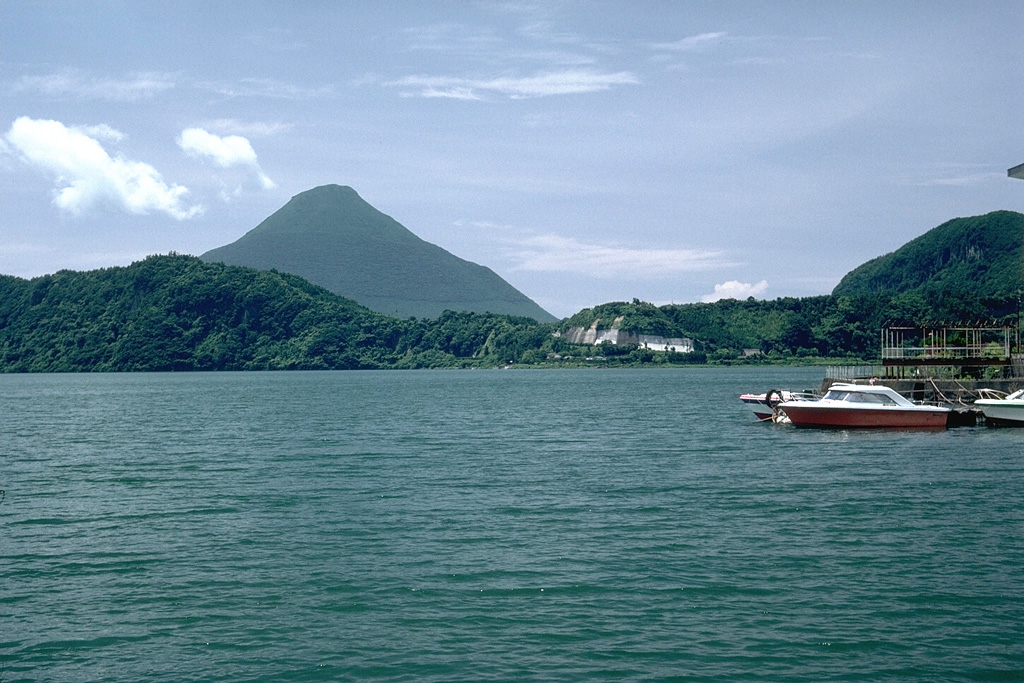Global Volcanism Program | Image GVP-01324

Ikedako is a 4.5-km-wide lake-filled caldera that was formed as a result of a major explosive eruption about 4,600 years ago. Kaimon is the highest peak of the Ibusuki volcanic field, rising to the SW above the caldera rim. The eruption of the 3 km3 Ikeda pumice was the the largest Holocene eruption in the Ibusuki volcanic field, which consists of a group of small central volcanoes and maars, along with Ikedako caldera and Kaimon.
Photo by Lee Siebert, 1988 (Smithsonian Institution).
![]() This image is made available under the Public Domain Dedication CC0 license, but proper attribution is appreciated.
This image is made available under the Public Domain Dedication CC0 license, but proper attribution is appreciated.
Galleries: Calderas
Keywords: caldera | volcanic field

Ata
